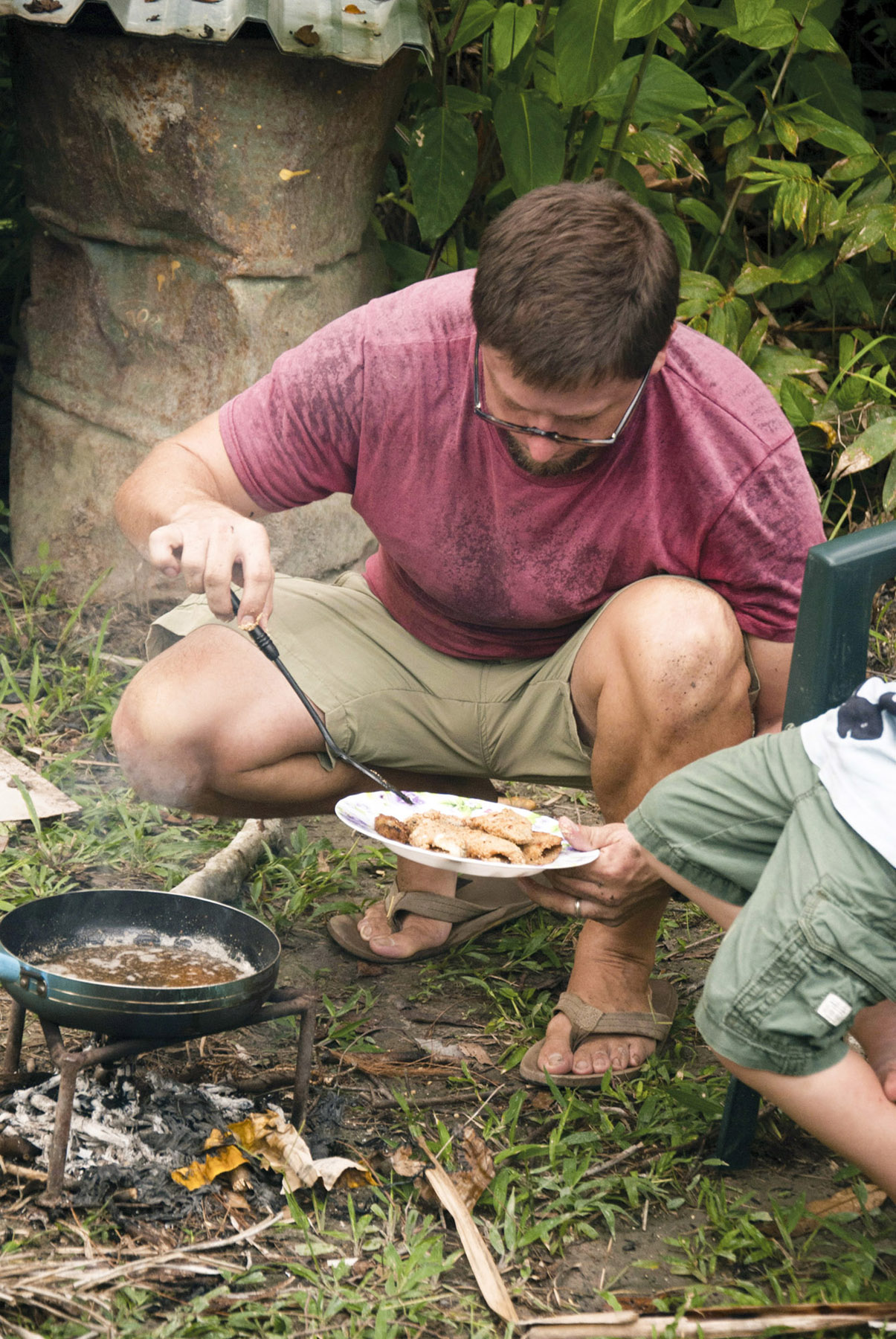
EDITOR’S NOTE: IMB has released a series of stories called Flavors of the World related to how food can be used as a tool to build relationships and to share the Gospel. Here is one of the stories from that series that Baptist Press will release periodically.
AMAZON (BP) — In the Amazon jungle, where modern amenities are scarce or perhaps non-existent, even the most basic necessities of life can present a challenge. Lack of electricity, limited ingredients and finite amounts of fuel all make cooking much more difficult in these rural, isolated areas.
Despite the challenges, many IMB missionaries follow God’s call to work in these harsh environments, sharing the Gospel among the many jungle residents who have never heard the name of Jesus.
Missionaries who are heading to jungle locations in South America are sent to the IMB’s jungle training camp, where they’re taught to meet these new challenges — including learning to cook in new ways.
Training leaders Charles and Brittany Shirey, who have lived in the Amazon jungle for about 13 years, teach jungle newbies how to cook for their families with only a few simple ingredients.
Some ingredients, like baking soda, baking powder and peanut oil, can be brought in from nearby cities as missionaries travel in and out of their assigned area. But aircraft weight limits and small storage spaces mean many other items must be hunted, gathered or bought from inside the jungle communities.
Fish is a common source of meat, along with small game and the occasional caiman (a type of alligator) or monkey. Fruit isn’t always accessible.
At the jungle training camp, International Mission Board missionaries can buy a few staples, like rice, flour, sugar and pasta noodles, from small, oddly stocked local stores that can be accessed by canoe. In most of those stores — and there are only a few — entire shelves are packed with sardines in tomato sauce, a favorite of the locals.
To help teach these missionaries to cook out in the jungle and to keep them from having to rely on tomato-drenched fish, the Shireys have incorporated a cooking segment into the training program.
“We teach how to build a fire to all the trainees and then a woman’s session on cooking in remote places,” Brittany Shirey explains. “Then we have a cooking competition with the women and their kids. They are given four ingredients and they can add any three to it, and then they cook over an open fire. A judge picks the best dish.”
But limited ingredients aren’t the only challenges to cooking in the wild.
“The trainees have no refrigeration,” Shirey says. “We also have very limited water and propane.”
No refrigeration means all meat must be fresh, which makes storing things like chicken and fish impossible. Rainwater, which serves as drinking, cooking and showering water, is collected in large bins and then pumped into the trainees’ cabins. If they run out of water, they must wait for the next rainfall to get more.
For Scott and Lisa Williams,* keeping a good attitude in the face of these obstacles is essential. The couple and their four children were among the first to go through the training to help prepare them to live among a remote, unreached people group in Mexico.
Nutrition is a big concern for the family. Still, they choose to see their calling as an opportunity rather than a struggle.
“How many times when you’re leaving the U.S., people say, ‘oh, you’re giving up so much, what are your kids going to miss out on?'” Scott Williams jokes. “I’m like yeah, my poor kids have had to go to the jungle, and they’ve eaten caiman and piranha and peacock bass. What poor kids.”
Through learning new techniques and sharing original recipes with one another, trainees prepare to meet the challenge with imagination, good humor and most importantly, a deeper reliance on God.
“There’s a difference between surviving and thriving,” Williams says. “You set me just about anywhere and I’ll survive, but to thrive is different. It’s all about what you do with what you’ve got. You have to take it to the Lord and just trust Him.”
When the challenges of jungle living get tough — and they often do — the couple reminds themselves that what they’re doing isn’t about them or their comfort. Like the rest of the families who have passed through the camp, they know it’s all about laying aside their lives for the sake of telling others about Jesus.
“I mean, when God tells you to go, you go,” Williams says. “No matter what. If we don’t go and tell these people, who will? They’re there, and they’re hard to get to, and many of them have never heard. So you go, and you trust God to take care of the rest.”
–30–
*Name changed. Emily Pearson served as an IMB writer in the Americas. Get Baptist Press headlines and breaking news on Twitter (@BaptistPress), Facebook (Facebook.com/BaptistPress) and in your email (baptistpress.com/SubscribeBP.asp).

















